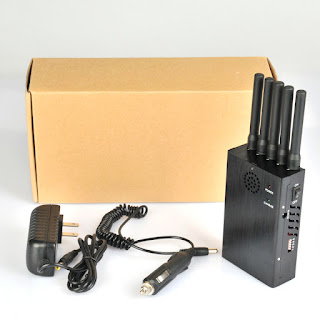Texas beauty school’s need with 5W adjustable cell phone jammer?
Seeking a quiet atmosphere in the classrooms, a cosmetology school located just outside Dallas opted to utilize a 5W adjustable cell phone blocker. This choice, along with the presence of three additional jammers waiting to be configured, set off a series of events that unfolded last week.
Phonejammer.com, a company based in London, has been under the FCC's watchful eye for quite some time. In 2008, the agency issued a citation to Phonejammer (PDF) for their marketing of radio frequency devices specifically intended to interfere with cellular and PCS frequencies in the United States.
The company denied marketing these products in the US, where they are prohibited, but FCC staff noted that the signal blocker were priced in US currency, the default shipping location was set to the United States, and the site included testimonials from US citizens who had purchased phone jammers from Phonejammer. Furthermore, the jammers on the site were specifically designed to target US cellular and PCS frequencies.
You might suspect that the interests of the federal government in your business practices might be reason enough to change them, but then again, you don't run Phonejammer. On November 9, 2009, the FCC received a complaint (apparently from AT&T) about cellular interference in the 800MHz and 1900MHz bands. Staff from the FCC's Texas field office tracked the problem to the Cosmetology Career Center in Carrollton, Texas and found a 5W jammer on the premises (PDF).
When contacted by the FCC, Phonejammer's attorney claimed that the company has not shipped or distributed any units to the United States.
At a price of $395, the 5W jammer provided by the Cosmetology Career Center is equipped with two antennas and has a jamming radius of 2-25m. It is designed to block PCS, GSM, and CDMA signals between 850MHz and 2100MHz. The website indicates its "operating location" as South America and Africa.
In a peculiar turn of events, it is legal to openly carry firearms into a Starbucks in both Texas and Florida, while the use of phone jammers is not permitted. Consequently, when a loud cell phone conversation disrupts the peace at a nearby table, individuals are left with the choice of either enduring the disturbance or resorting to using a firearm. This situation prompts a reevaluation of existing public policy standards.


Comments
Post a Comment